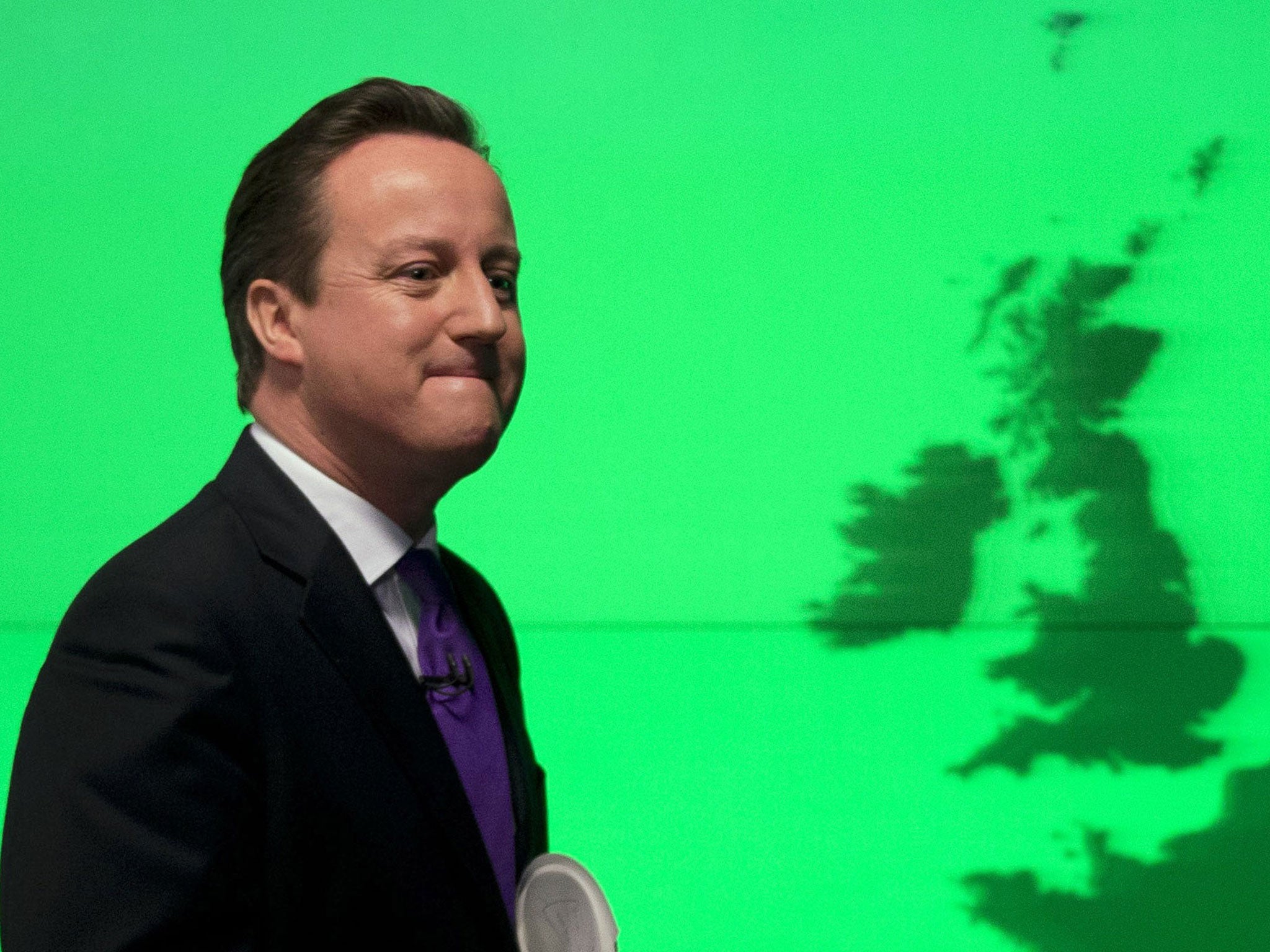'It is time for the British people to have their say': David Cameron promises EU exit vote by 2017

Your support helps us to tell the story
From reproductive rights to climate change to Big Tech, The Independent is on the ground when the story is developing. Whether it's investigating the financials of Elon Musk's pro-Trump PAC or producing our latest documentary, 'The A Word', which shines a light on the American women fighting for reproductive rights, we know how important it is to parse out the facts from the messaging.
At such a critical moment in US history, we need reporters on the ground. Your donation allows us to keep sending journalists to speak to both sides of the story.
The Independent is trusted by Americans across the entire political spectrum. And unlike many other quality news outlets, we choose not to lock Americans out of our reporting and analysis with paywalls. We believe quality journalism should be available to everyone, paid for by those who can afford it.
Your support makes all the difference.David Cameron called today for a fundamental change in Britain’s relationship with the European Union as he made his promise of an “in or out referendum” within five years on whether the country should remain a member of the 27-nation club.
In a landmark speech on Europe that will set the tone for British politics for years, the Prime Minister said the “ever closer union” which was the founding principle of the EU should no longer apply to Britain.
"We understand and respect the right of others to maintain their commitment to this goal. But for Britain – and perhaps for others – it is not the objective. And we would be much more comfortable if the treaty specifically said so, freeing those who want to go further, faster, to do so, without being held back by the others.
“Power must be able to flow back to member states, not just away from them,” he said. “Nothing should be off the table.” He added: “The biggest danger to the EU comes not from those who advocate change, but from those who denounce new thinking as heresy. In its long history Europe has experience of heretics who turned out to have a point,” he said.
Mr Cameron pledged that, if the Conservatives win the May 2015 election, a referendum would be held within the first half of the five-year parliament – which means by the end of 2017. It will be the first referendum on Europe since Britain voted in 1975 to stay in the EU, two years after joining.
Although his clear promise of a simple “in or out” vote was welcomed by Tory Eurosceptics, his speech left some crucial questions unanswered. Mr Cameron said he wanted Britain to remain in the EU and was confident of winning a “new settlement”, with some powers returned from Brussels to London, that would enable him to recommend a Yes vote in the referendum. But answering questions after his address, he refused to say what he would do if other EU leaders did not give him a deal he could recommend to the British public. This is seen as a highly possible scenario on the Continent, where other EU nations say the UK cannot “cherry-pick” the EU laws which suit it.
Mr Cameron said he would table Britain’s demands even if the EU backed away from a new treaty to entrench reforms to the eurozone. "If there is no appetite for a new treaty for us all then of course Britain should be ready to address the changes we need in a negotiation with our European partners," he said.
He questioned the EU’s need to legislate on areas such as the environment, social affairs and crime and made clear that Britain wanted to extend its opt-out from aspects of the working time directive. "It is neither right nor necessary to claim that the integrity of the single market, or full membership of the EU requires the working hours of British hospital doctors to be set in Brussels irrespective of the views of British parliamentarians and practitioners,” he said.
Mr Cameron had some words of reassurance for pro-British businessmen. “I never want us to pull up the drawbridge and retreat from the world. I am not a British isolationist. I don’t just want a better deal for Britain. I want a better deal for Europe too. So I speak as British Prime Minister with a positive vision for the future of the EU. A future in which Britain wants, and should want, to play a committed and active part.”
Subscribe to Independent Premium to bookmark this article
Want to bookmark your favourite articles and stories to read or reference later? Start your Independent Premium subscription today.
Join our commenting forum
Join thought-provoking conversations, follow other Independent readers and see their replies
Comments